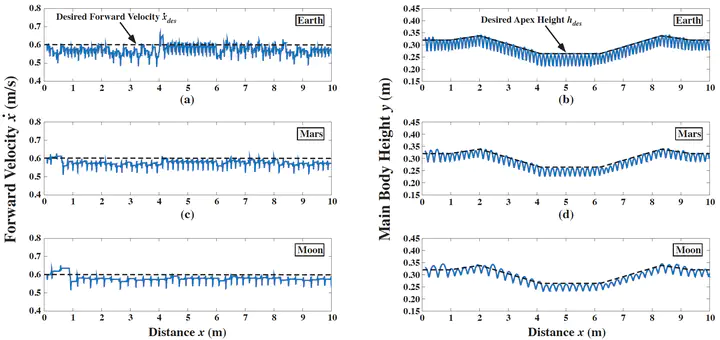
Abstract
Recent successes of missions such as the MSL and the Rosetta have increased the interest in the robotic exploration of other planets and asteroids. Although most of these missions envisage the use of rovers, legged robots have shown the potential to outperform wheeled vehicles on rough terrains in terms of speed and energy efficiency. In this paper, the x-MP controller presented in recent work, is used to evaluate the performance of a monopod robot under the effect of different gravitational fields and terrain types. The performance of the x-MP controller during regulating the robot motion on rough terrains and for the exploration of different types of planetary environments will be examined using simulations. Additionally using the Cost of Transport index, useful conclusions regarding the performance of legged robots for planetary exploration will be extracted.